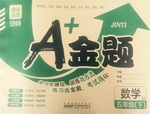
| |||||||||||||||||||||||||||||||||||||||||||||||||||||||||||
(1) |
根据He was then slowly reintroduced to food, a process doctors say could be life threatening可知,进食对他来说是个威胁生命的过程。 |
(2) |
文中说at times he was unable to see,是说他有时看不见东西,但并不等于说他的眼睛瞎了。故A项的说法不符合事实。 |
(3) |
根据buried in a coffin for one week…spent 62 hours in a giant block of ice…stood on top of a 25-meter pillar in the center of New York for 35 hours before jumping into a pile of boxes等细节描写,我们可以得出这个结论:David Blaine喜欢冒险。 |
(4) |
根据A native of Brooklyn, New York我们可以知道Blaine是地地道道美国人。 |


 A加金题 系列答案
A加金题 系列答案 全优测试卷系列答案
全优测试卷系列答案科目:高中英语 来源:人教社新课程2003年审核高一上册练习 人教社新课程2003年审核 题型:050
阅读理解
This dictionary tells you about English words and how to use them in reading,writing and speaking English. It not only gives the toeing of words,it can also help you with spelling,word-building,grammar and pronunciation.
To use your dictionary correctly,you. need to understand how the dictionary works At the front of the book,you will find some exercises to help you make the most use of your dictionary.
If you look up the word “colour”,you will find two spellings for this word.“Colour” is used in British English,while “color” is used in American English. When there are differences between British and American spelling,the dictionary shows it with the word “BrE” for British English and “AmE” for American English.
The dictionary also helps you pronounce words correctly. We use a special alphabet(特殊字母表) to show pronunciation. If you turn to the inside hack face,you will see all the phonetic letters (音标) with some words to show you how they are pronounced Just look at the inside hack cover when you're not sure how to say a word.
The most important reason for using a dictionary is to find out the meaning of a word- its DEFINITION.
In this dictionary,the definitions have been written using only 2000 words. This means that the definitions of even the most difficult words are simply explained (简单解释) and easy to understand.
When a word has more than one meaning,read all the meanings until you find the one that correctly tells the use of the word you are looking for.
Most of the words in this dictionary can be used by people in all parts of the world.
(1)________of the words in the dictionary have two spellings.
[ ]
(2)The AmE spelling of the Chinese word “颜色” in this dictionary is _________.
[ ]
(3)The Chinese meaning of "definition" here is _________
[ ]
(4)How many words are there in this dictionary? _________
[ ]
(5)The dictionary explains _________
[ ]
A.some of the difficult words
B.all the words in a simple way
C.all the easy words
D.the words of two meanings
查看答案和解析>>
科目:高中英语 来源: 题型:053
阅读理解
This dictionary tells you about English words and how to use them in reading,writing and speaking English. It not only gives the toeing of words,it can also help you with spelling,word-building,grammar and pronunciation.
To use your dictionary correctly,you. need to understand how the dictionary works At the front of the book,you will find some exercises to help you make the most use of your dictionary.
If you look up the word “colour”,you will find two spellings for this word.“Colour” is used in British English,while “color” is used in American English. When there are differences between British and American spelling,the dictionary shows it with the word “BrE” for British English and “AmE” for American English.
The dictionary also helps you pronounce words correctly. We use a special alphabet(特殊字母表) to show pronunciation. If you turn to the inside hack face,you will see all the phonetic letters (音标) with some words to show you how they are pronounced Just look at the inside hack cover when you're not sure how to say a word.
The most important reason for using a dictionary is to find out the meaning of a word- its DEFINITION.
In this dictionary,the definitions have been written using only 2000 words. This means that the definitions of even the most difficult words are simply explained (简单解释) and easy to understand.
When a word has more than one meaning,read all the meanings until you find the one that correctly tells the use of the word you are looking for.
Most of the words in this dictionary can be used by people in all parts of the world.
(1)________of the words in the dictionary have two spellings.
[ ]
(2)The AmE spelling of the Chinese word “颜色” in this dictionary is _________.
[ ]
(3)The Chinese meaning of "definition" here is _________
[ ]
(4)How many words are there in this dictionary? _________
[ ]
(5)The dictionary explains _________
[ ]
A.some of the difficult words
B.all the words in a simple way
C.all the easy words
D.the words of two meanings
查看答案和解析>>
科目:高中英语 来源:浙江省五校2012届高三第一次联考英语试题 题型:050
| |||||||||||||||||||||||||||||||||||||||||||||||||||||||||||
查看答案和解析>>
湖北省互联网违法和不良信息举报平台 | 网上有害信息举报专区 | 电信诈骗举报专区 | 涉历史虚无主义有害信息举报专区 | 涉企侵权举报专区
违法和不良信息举报电话:027-86699610 举报邮箱:58377363@163.com